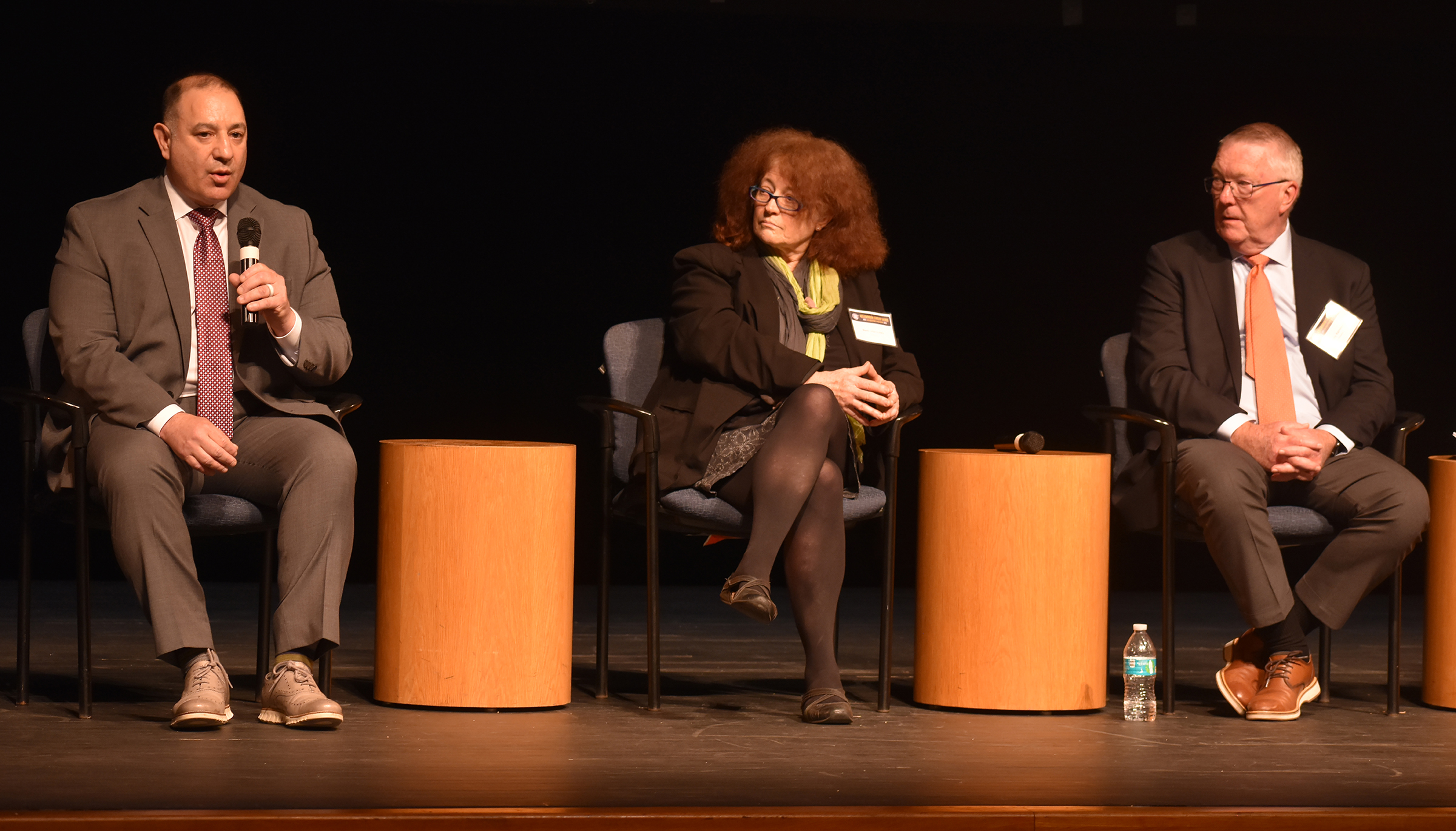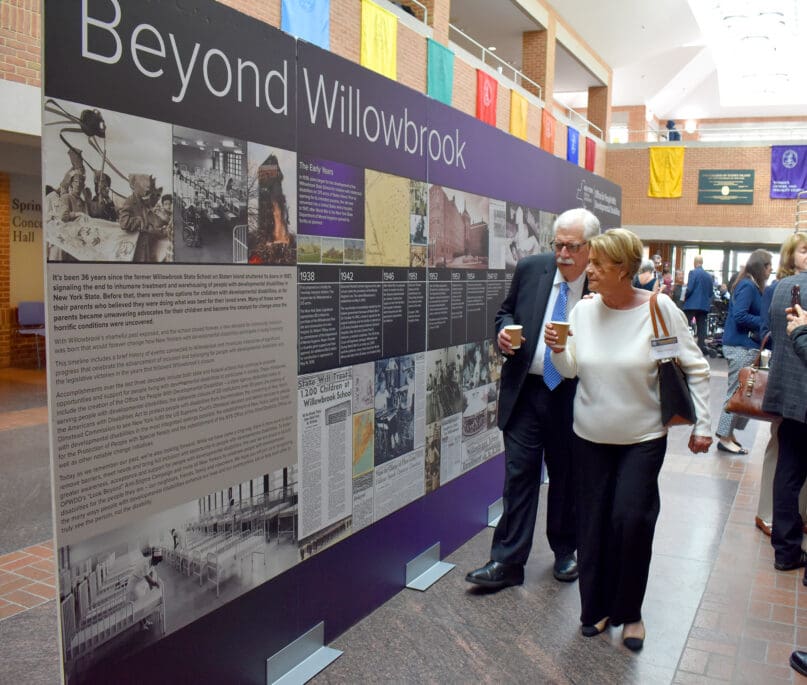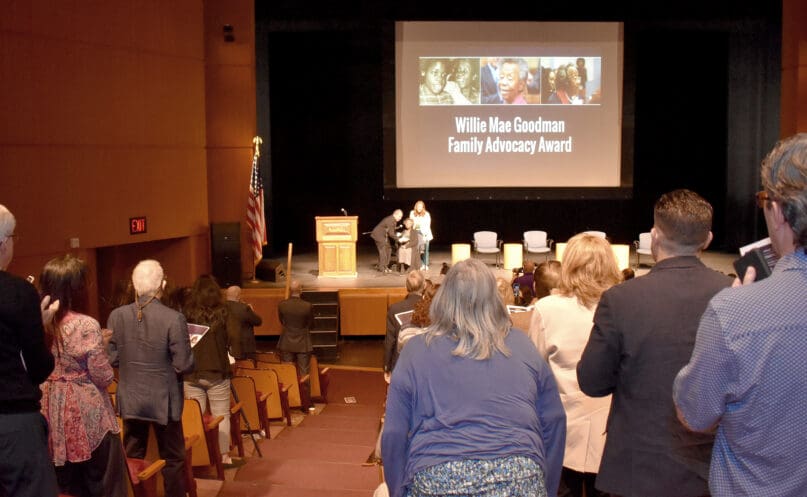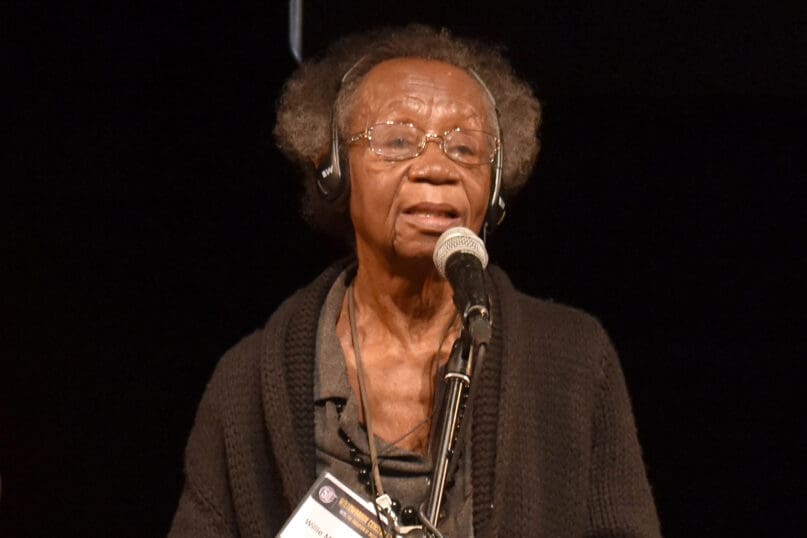Hundreds of disability advocates, professionals, and family members gathered at the College of Staten Island to recognize the 50th Anniversary of the Willowbrook Consent Decree on Friday, May 2nd. The college is located on the former site of Willowbrook State School, one of the most infamous institutions used to house and care for children and adults with developmental and intellectual disabilities from 1947 to 1987.

Speakers at the event included Willow Baer, OPWDD Acting Commissioner; Kim Hill, NYS Chief Disability Officer; Timothy Lynch, President of the College of Staten Island; and Erik Geizer, Chief Executive Officer of The Arc New York. A panel of legal experts and self-advocates spoke on the past and present effects of the Consent Decree and the uncertain future of community-based disability services due to threatened Medicaid cuts by Congress.
What is the Willowbrook Consent Decree?
Willowbrook State School opened in 1947 with the stated goal of educating and training people with intellectual and developmental disabilities whose families could not or would not care for them. Within just a few years, however, funding cuts and understaffing severely hampered any effective quality of life for residents. Nearly three times as many people lived at Willowbrook as it was intended to hold.
View the documentary screened during the event, The Path Forward: Remembering Willowbrook, from The NYS Council on Developmental Disabilities.
In 1972, Geraldo Rivera released his expose, Willowbrook: The Last Great Disgrace, documenting the deplorable and inhumane conditions at Willowbrook. This built on work done by Jane Kurtin and Eric Aerts, journalists for the Staten Island Advance, brining public awareness to the residents’ plight. Parents filed a class action suit against the state, leading to Governor Hugh Carey’s signing of the Consent Decree in April 1975.
According to Disability Justice, “The Consent Judgment outlined specific procedures and instructions for treatment of residents, covering issues such as resident living, hiring of personnel, education, recreation, dental and medical care, therapy services…” and much more.
“Significantly, the Consent Judgment also declared as the primary goal of the institution and the New York Department of Mental Hygiene to ‘ready each resident…for life in the community at large’[5] and called for the placement of Willowbrook residents in less restrictive settings.”


Henry Kennedy, an attorney and parent to a young woman living in a Staten Island AHRC NYC residence, called the decree “A living document of hope that continues to live today.”
50 Years Later—An Uncertain Future Despite Much Progress
The ceremony included recognition of two unsung American heroes by OPWDD. Ms. Willie Mae Goodman and self-advocate Bernard Carabello were presented with awards named for them—Ms. Goodman with the Family Advocacy Award and Bernard with the Self-Advocacy Award.


Bernard and Geraldo Rivera reflected on their five-decade long friendship spurred on by Geraldo’s groundbreaking report and spoke on their fears with the current federal leadership.
Geraldo said, “You wonder about the intent [of Congress]—do they understand? Do they remember? We have to make them remember.”
Clarence Sundram, a lawyer and member of the Willowbrook Review Panel, monitoring the implementation of the Consent Decree, stressed the importance of continued advocacy by families.
“The victories that we think we’ve won don’t stay won. We have to remain vigilant because the motivations that brought people to Willowbrook are still with us.”
Clarence Sundram

